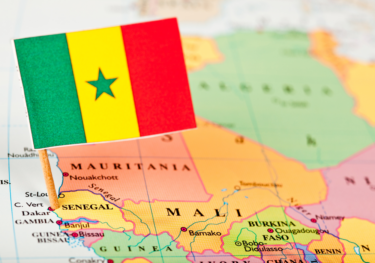News | 21 Feb 2023
Introducing our renovated African Forecasting Service

Noelani King Conradie
Managing Director, OE Africa

To coincide with the revamp, we published a report featuring the four most important elections on the continent in 2023. Click here to download the report “Africa: The most important elections in 2023”.
Africa is host to some of the fastest growing economies on the planet, but idiosyncratic risks and susceptibility to external shocks mean the continent is also host to considerable growth volatility. To better support our clients to navigate volatility in Africa and drive business growth, we are pleased to announce that we have revamped our African Forecasting Service.
“For businesses who want to tap into opportunities in Africa, we bring together a global perspective and on-the-ground expertise to address the most pressing issues for Africa’s today and tomorrow. We provide up-to-date political and economic commentary, narrated into a single actionable view, enabling businesses to move with confidence in the world’s most dynamic continent,” said Noelani King Conradie, the Managing Director of Oxford Economics Africa.
How do we help our clients to better drive business growth in Africa?
At Oxford Economics Africa we enable our clients to capitalize on volatility and support them to:
- Cut through the noise. Stay on top of the ever-evolving market and make timely calls with the support of the largest macro research team on the continent.
- Stay ahead of the curve. Inform your planning with concise and action-driven insights that connect the dots among politics, economics and their implications on the market.
- Manage emerging risks. Monitor and measure risks impacting investment and business environments across the continent.
What do we offer through our renovated solutions?
- Economic forecasts: economic data and analysis for all 54 African countries, with forecasts out to 2050; as well as analysis on financial market developments for key markets.
- Political analysis: in-depth analysis of the most pertinent political developments across the continent along with qualitative scenario analysis for 26 countries.
- City forecasts: forecasts for 102 African cities’ GDP, employment, population, household income, consumer spending and retail sales, along with city-level analytical deep-dives.
- Tourism forecasts: forecasts on passenger flows, number of overnight stays, tourism spending and more for 45 African countries and 16 major cities.
- Industry forecasts: in-depth analysis, forecasts and scenarios for 14 key industries and detailed sub-sector analysis in line with NACE revision 2 codes across 8 countries.
Tags:
You may be interested in

Post
Easter Egg-onomics
The cause of Easter egg inflation of 50% or more this year is largely explained in the latest paper from our Africa team on one of the key countries at the start of the supply chain, those producing the raw ingredient.
Find Out More
Post
Africa: Radical Faye looks strong in Senegal’s presidential election
The first round of Senegal's presidential election will take place on Sunday, March 24. The race is unpredictable, given the dramatic backdrop to it. In this Research Briefing, we set out the main dynamics relating to the election and refresh our political scenarios.
Find Out More
Post
The long-term outlook for Northern African cities
North African cities are forecast to experience some of the fastest rates of employment and population growth over the long term. GDP growth is also forecast to be near the top of the global pack, just trailing behind sub-Saharan Africa.
Find Out More